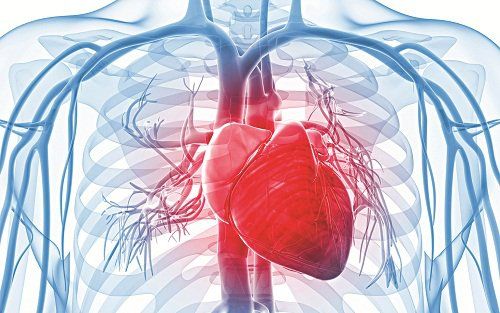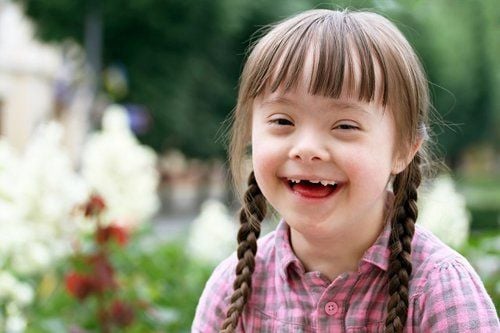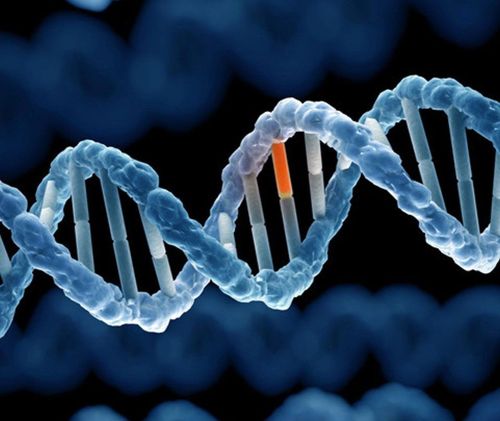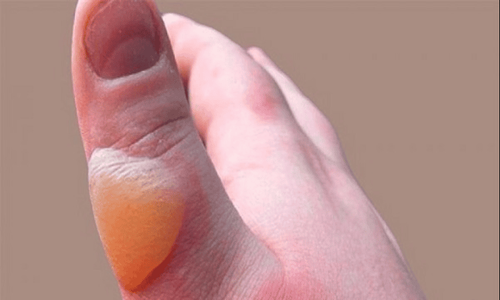This is an automatically translated article.
The article is professionally consulted by Specialist Doctor II Le Thanh Cam - Pediatrician - Pediatrics - Neonatology - Vinmec Danang International General HospitalDown syndrome affects each person in a unique way, so there is no universal treatment for all babies with Down syndrome. But the sooner they get medical care, the more likely they are to live to their full potential.
1. Methods to support the treatment of Down's disease
Down syndrome in children is not an uncommon disease, it has a serious impact on a child's development. Therefore, early diagnosis is essential to help children enhance physical and intellectual development. With the support of physiotherapists and highly trained teachers, children will learn many skills, such as:Feeding and changing clothes by themselves. Flip, crawl and go. Play and socialize with other friends. Think and solve problems. Talk, listen and understand others. Babies with Down Syndrome need support in a variety of ways, from crawling and walking to talking and socializing. Your baby needs special attention at school, and may have health problems that require regular care.
Baby will need medical care and support to develop skills to the fullest extent possible thanks to the following team of doctors:
Primary care and treatment Pediatrician Pediatric Cardiologist Doctor Pediatric Gastroenterologist Pediatric Endocrinologist Developmental Pediatrician Pediatric Neurologist Pediatric Otolaryngologist Pediatric Eye Doctor Speech Therapist Physical Therapist
2. Down's disease and related health problems

2.1 Hearing loss Many children with Down Syndrome have hearing loss in one or both ears. As a result, your child may have to see an ENT doctor regularly. Sometimes hearing problems are caused by fluid building up in the ear, causing the ear canal to become inflamed for a long time.
2.2 Problems with eyesight Problems with vision are also very common in children with Down syndrome. Your baby may need to see an eye doctor regularly and need glasses, surgery, or other treatments. Hearing and vision problems are very important and need to be closely monitored because these two senses directly affect a child's ability to learn and communicate.
2.3 Cardiovascular disease About half of babies with Down syndrome have problems with the structure and function of the heart. Some serious conditions require surgery, some milder conditions can be controlled with medication.
2.4 Obstructive Sleep Apnea This is a condition in which the patient stops breathing and breathes again while sleeping. Usually a 4-year-old with Down's Syndrome is tested for sleep apnea.
Currently, Vinmec medical system has deployed polysomnography sleep measurement service. Unlike conventional sleep polygraphs that can only diagnose obstructive sleep apnea, Vinmec International General Hospital uses the Sapphire PSG sleep polysomnography system. This is a comprehensive sleep monitoring system developed by CleveMed that can diagnose obstructive, central or mixed sleep apnea causes. This machine system has 22 signal acquisition channels such as: electroencephalogram, electromyogram, electrocardiogram, electrocardiogram, measuring oxygen saturation, measuring airway pressure, determining snoring, thoracic induction, induction of drive abdomen, blood pressure, temperature...
2.5 Blood cancer Children with Down syndrome are 10-20 times more likely to have this type of cancer. Blood cancer can be cured.
In addition, thyroid-related diseases such as thyroid dysfunction and other health problems are less common including:
Intestinal obstruction : Some babies with Down have Hirschsprung's disease also known as hypertrophy Congenital colon or congenital colonic aplastic disease, at the site of intestinal obstruction. The treatment is surgical removal of the blocked bowel. Inflammation: Babies with Down syndrome also have a weaker immune system, so they are more likely to get sick than usual. There is no cure for this problem, but it can be improved with the right vaccinations and doses.
3. Care and support for children with Down syndrome

3.1 Get information and consult your doctor about child support programs in your area These are special programs for babies and children with Down syndrome from an early age (usually until age 3) to help develop motor, language, social skills and self-help.
3.2 Finding the right school Depending on the requirements of each child, parents should choose a general school or a special education school.
3.3 Look for like-minded families Support groups for parents of children with Down Syndrome are available locally or online. Family and friends will also be a shoulder of understanding and support for you.
3.4 Participate in community and recreational activities Make time for family outings and social activities such as: community program, sport or talent. Although it will take time to settle in, parents and babies can enjoy social and recreational activities

Think about a brighter future, most people with Down syndrome live with their families or independently, attend school, read and write, participate in social activities and have jobs. People with Down Syndrome can still lead a full life.
Therefore, for the prevention and early detection of Down syndrome is extremely important; so that appropriate monitoring and treatment measures can be taken. Down syndrome is currently not curable but can be detected early thanks to NIPT prenatal screening with many advantages:
Early detection of the risk of disease (from the 10th week of pregnancy) Accuracy up to 99.9 % Ensure safety for both mother and child because only about 10ml of blood is taken from the mother's vein for testing. As a key area of Vinmec Medical system, Pediatrics Department always brings satisfaction to customers and is highly appreciated by industry experts with:
Gathering a team of leading pediatricians: including leading experts with high professional qualifications (professors, associate professors, doctorates, masters), experienced, worked at major hospitals such as Bach Mai, 108.. Doctors All are well-trained, professional, with a mind - range, understanding young psychology. In addition to domestic pediatric specialists, the Department of Pediatrics also has the participation of foreign experts (Japan, Singapore, Australia, USA) who are always pioneers in applying the latest and most effective treatment regimens. . Comprehensive services: In the field of Pediatrics, Vinmec provides a series of continuous medical examination and treatment services from Newborn to Pediatric and Vaccine,... according to international standards to help parents take care of their baby's health from birth to childhood. from birth to adulthood Specialized techniques: Vinmec has successfully deployed many specialized techniques to make the treatment of difficult diseases in Pediatrics more effective: neurosurgery - skull surgery, stem cell transplantation. blood in cancer treatment. Professional care: In addition to understanding children's psychology, Vinmec also pays special attention to the children's play space, helping them to have fun and get used to the hospital's environment, cooperate in treatment, improve the efficiency of medical treatment.
Please dial HOTLINE for more information or register for an appointment HERE. Download MyVinmec app to make appointments faster and to manage your bookings easily.
Article reference source: webmd.com, mayoclinic.org













